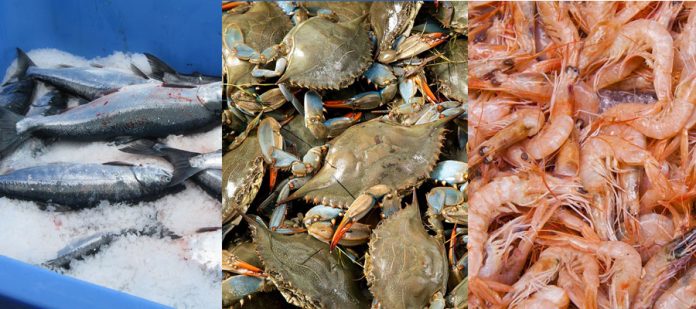The Department of Health is reminding people not to eat fish, crabs or shellfish collected from the Swan River downstream from Pelican Point to Como Jetty and upstream to Maali Bridge Park, Herne Hill due to the impact of the potentially toxic microscopic alga ‘Alexandrium spp .
This area includes the commonly known areas of Matilda Bay, Como Jetty, Perth Waters, Elizabeth Quay, Barrack Street Jetty, Claisebrook Cove, Ascot Waters, Riverside Gardens, Garvey Park, Sandy Beach Reserve, Point Reserve, Fish Market Reserve, Woodbridge Riverside Park and Middle Swan Reserve.
Acting Environmental Health Executive Director Dr Michael Lindsay said that ingestion of toxins produced by the detected microscopic algae ‘Alexandrium spp could produce a type of poisoning known as paralytic shellfish poisoning (PSP).
“These algae produce toxins that are absorbed by filter feeding shellfish and potentially consumed by crabs and finfish to a lesser extent” he said.
“It is important to note that cooking will not destroy these toxins.”
To date, Paralytic Shellfish Toxins (PSTs) have been detected in some mussels and Blue Swimmer Crabs within the area affected by the Alexandrium bloom. Based on these results and the fact that it may take time for the toxins to pass through biota in the system the current advice not to eat fish, crabs or shellfish taken from the affected area in the Swan River remains in place.
The Department of Biodiversity, Conservation and Attractions will conduct further testing for toxins in mussels, Blue Swimmer Crabs and Black Bream in the Swan River, with assistance from the Department of Primary Industries and Regional Development, to help inform advice provided by the Department of Health.
People who consume wild shellfish, crabs or fish collected from the affected Swan River area may experience symptoms including, tingling or numbness of the lips, prickliness of the fingertips and toes, nausea or vomiting, impaired balance, dizziness, slurred speech, double vision, weakness, difficulty in swallowing or breathing, loss of fluids and diarrhoea.
In severe cases PSP may cause muscular paralysis in people who consume affected shellfish, crabs or fish.
Dr Lindsay said that anyone who had consumed shellfish, crabs or fish collected from the Swan River and experiences any of these symptoms should seek urgent medical attention, particularly if they feel any respiratory distress.
“Do not discard uneaten portions of mussels or other shellfish as these may assist with determining a likely cause of any symptoms.”
Shellfish includes oysters, mussels, clams, pipis, scallops, cockles and razor clams.
As a general rule people should avoid eating shellfish collected recreationally in rivers, estuaries or other waterways where there is an increased likelihood of contaminant or nutrient inputs that in turn can lead to increased microscopic algae growth.
Dr Lindsay said farmed shellfish purchased in supermarkets and other commercial outlets in WA are not affected as there is a strict quality-assurance program to ensure they are safe for human consumption.
“Other recreational activities including swimming, skiing and boating are not likely to be affected by this microalgae species, but as a general rule swimming should be avoided in areas of discoloured water.”
Health warning signs advising against crabbing, shellfish collection and fishing have been erected at key locations including certain jetties, boat ramps and key accessible foreshore areas within the affected region.
Not all waterways are always monitored for algal blooms and anyone who sees or suspects an algal bloom in a waterway should report this to the Department of Water and Environmental Regulation’s ALGALWATCH during office hours on 6250 8064 or to the relevant local government authority for assessment.
For further information on the Alexandrium algae bloom contact the Department of Health on 9222 2000 or visit https://healthywa.wa.gov.au/algalblooms for Frequently Asked Questions.



























